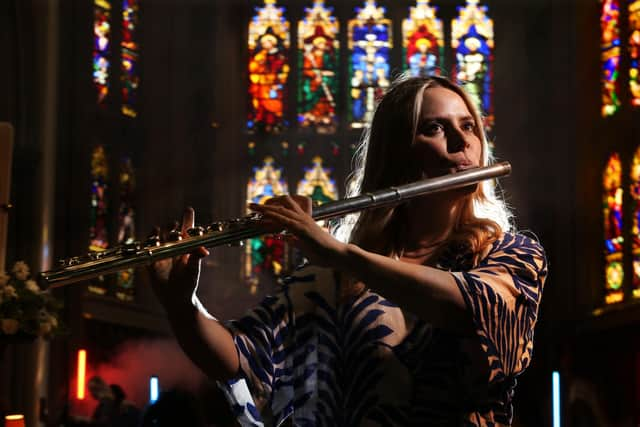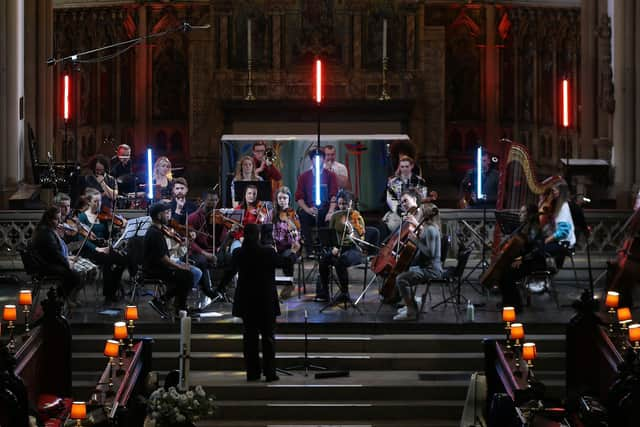Paradox Orchestra: The Yorkshire orchestra giving the classical treatment to iconic pop and rock hits
Leeds has long been held in high regard as a centre of the arts in general and music in particular.
Now a ground-breaking cross-over orchestra aims to establish the city as an innovative and inclusive hub for young classical musicians – and their at-risk instruments.
Advertisement
Hide AdAdvertisement
Hide AdNow a ground-breaking cross-over orchestra aims to establish the city as an innovative and inclusive hub for young classical musicians – and their at-risk instruments.


Paradox Orchestra is forging new opportunities for classically-trained musicians in the city, while keeping alive ‘extinct’ classical instruments.
Homegrown in Leeds, Paradox Orchestra gives the classical treatment to pop hits and iconic rock tracks, while safeguarding the hard-won skills of classical musicians in the city.
Playing Pet Shop Boys instead of Puccini, Rock rather than Rachmaninov, and Ed Sheeran over Strauss, the orchestra has just announced major new concert dates, performing Pink Floyd by candlelight this autumn at Leeds Minster.
Advertisement
Hide AdAdvertisement
Hide AdOften seen as the “preserve of the privileged”, the classical music sector has also been rocked by funding cuts.


The 40-strong orchestra was created by 32-year-old Michael Sluman in 2020 to create a commercially viable and inclusive platform for classically-trained musicians in Leeds. It’s an approach that safeguards classical musicians’ livelihoods in a precarious sector, while attracting younger and new audiences.
A rarity in the sector, Mr Sluman grew up in a Yorkshire mining town in a working-class family. His father was a porter and mother a health-care assistant. Michael spent his twenties playing guest principal oboe in professional orchestras all over the world. A graduate of Leeds Conservatoire and BBC Next Generation Artist, he is currently studying for a PhD at the Royal Academy of Music.
He said: “I was of that last generation in the ‘80s when state schools offered free music lessons through their local council.”
Advertisement
Hide AdAdvertisement
Hide AdFormed mainly of graduates from Leeds Conservatoire, the musicians forming Paradox Orchestra have already diversified to survive, playing with some of the biggest acts in pop, including Ed Sheeran, Marc Almond, Little Mix, Craig David, Sugarbabes, and Louis Tomlinson.
Accessibility in the industry has long been under threat. Research shows young people from higher income families are overrepresented across the industry’s elite training opportunities. A six-year study by Arts Council England, Creating a More Inclusive Classical Music, found just a fraction of people working in classical music emerged from Yorkshire, with almost half hailing from London. The report also found barriers for ethnic minorities, women, the disabled, and LGBTQ+ communities.
Mr Sluman said: “Playing pop, rock and popular tracks is a great way to introduce new audiences to classical instruments.”
Paradox Orchestra performs Pink Floyd by candlelight at Leeds Minster on Saturday November 11, 7.30pm. Sign up for presale [email protected].